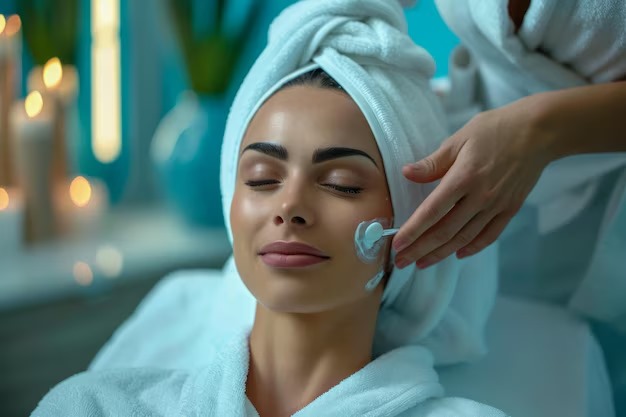Understanding Skin Whitening Treatments
Skin Whitening Treatment in Dubai are gaining popularity among people who wish to achieve a more radiant, even-toned complexion. These treatments are designed to reduce pigmentation, dark spots, and uneven skin tones caused by factors such as sun damage, aging, or genetic predisposition. While various methods are available, it's important to choose treatments that are safe and suitable for your skin type.
Causes of Skin Discoloration
Before diving into the best treatments, it's crucial to understand what causes skin discoloration. Common causes include:
- Melanin overproduction: The primary factor behind skin pigmentation is melanin, the pigment responsible for the skin’s color. When too much melanin is produced, it leads to hyperpigmentation.
- Sun exposure: Ultraviolet (UV) rays can trigger melanin production, causing dark spots and uneven skin tones.
- Hormonal changes: Conditions such as pregnancy or use of certain medications can lead to melasma, a form of skin discoloration.
- Aging: As the skin ages, it can develop age spots and lose its natural glow.
Popular Skin Whitening Treatments
The best skin whitening treatments vary depending on individual preferences and needs. Below are some of the most effective options available today:
Topical Creams and Serums
Topical products are among the most accessible and commonly used skin whitening treatments. These creams and serums typically contain ingredients that help reduce melanin production or promote skin cell turnover. Some key ingredients include:
- Hydroquinone: A potent skin lightening agent that reduces melanin production, hydroquinone is often recommended for treating dark spots and pigmentation.
- Vitamin C: Known for its brightening properties, vitamin C is a powerful antioxidant that helps fade dark spots and enhances the skin’s radiance.
- Niacinamide: This ingredient reduces pigmentation and improves the overall tone and texture of the skin.
- Kojic Acid: Derived from fungi, kojic acid inhibits melanin production, leading to a brighter, more even complexion.
Topical treatments are often slow but steady, requiring consistent application over weeks or months to see noticeable results.
Chemical Peels
Chemical peels are a more aggressive approach to skin whitening. In this procedure, a chemical solution is applied to the skin, which exfoliates the top layers. This reveals newer, lighter skin underneath and reduces the appearance of pigmentation. Common types of chemical peels include:
- Glycolic Acid Peels: Effective for treating hyperpigmentation, glycolic acid peels work by gently exfoliating the skin and promoting new skin cell growth.
- Salicylic Acid Peels: Best suited for those with acne-prone or oily skin, salicylic acid peels help reduce dark spots caused by acne scars and sun damage.
- TCA (Trichloroacetic Acid) Peels: A stronger option, TCA peels are used for more severe pigmentation and involve deeper exfoliation of the skin.
While chemical peels can deliver dramatic results, they require downtime and must be performed by a qualified professional to avoid risks such as skin irritation or scarring.
Laser Treatments
Laser treatments have revolutionized skin whitening procedures. Using focused beams of light, these treatments target and break down melanin in the skin, reducing pigmentation and dark spots. There are various laser treatments available, each offering unique benefits:
- Q-Switched NdLaser: This popular laser treatment is highly effective for treating melasma, freckles, and age spots. It works by breaking down melanin without damaging surrounding tissues.
- Fractional CO2 Laser: Ideal for deep pigmentation issues, fractional CO2 laser treatments work by resurfacing the skin and promoting collagen production, leading to a brighter and smoother complexion.
- IPL (Intense Pulsed Light): Though not a laser, IPL uses light energy to target pigmentation and improve skin tone. It’s effective for sunspots, freckles, and redness.
Laser treatments often require multiple sessions for optimal results, and some mild downtime may be necessary depending on the intensity of the procedure.
Microdermabrasion
Microdermabrasion is a minimally invasive treatment that exfoliates the outermost layer of the skin, removing dead skin cells and promoting the regeneration of new, lighter skin. This method is suitable for those with mild pigmentation issues or dull skin. It’s a quick procedure with little to no downtime, making it an appealing option for those seeking a fast solution.
Natural Remedies for Skin Whitening
For individuals seeking a gentler approach, natural remedies for skin whitening are also available. While these treatments may not provide the same dramatic results as medical treatments, they can be effective for maintaining a healthy, glowing complexion over time.
- Aloe Vera: Known for its soothing and healing properties, aloe vera can help reduce hyperpigmentation and even out skin tone.
- Lemon Juice: Rich in vitamin C, lemon juice has natural skin-lightening properties, although it should be used with caution to avoid skin irritation.
- Turmeric: This ancient spice has antioxidant and anti-inflammatory properties that can brighten the skin and reduce dark spots.
- Honey: With its moisturizing and antibacterial benefits, honey can help lighten scars and give the skin a healthy glow.
Importance of Sun Protection
No matter which skin whitening treatment you choose, one critical factor in achieving and maintaining radiant skin is sun protection. Excessive exposure to UV rays can undo the benefits of skin whitening treatments, leading to further pigmentation. Always apply a broad-spectrum sunscreen with an SPF of at least 30 to protect your skin from sun damage.
Choosing the Right Treatment for Your Skin
Selecting the best skin whitening treatment depends on your individual skin type, concerns, and desired results. For mild discoloration, topical creams and natural remedies may suffice. However, for more stubborn pigmentation issues, professional treatments like chemical peels, laser therapies, or microdermabrasion might be necessary. It’s essential to consult a dermatologist to determine the safest and most effective approach for your skin.
Conclusion
Radiant, even-toned skin is achievable with the right skin whitening treatment tailored to your needs. Whether opting for topical treatments, professional procedures, or natural remedies, maintaining a consistent skincare routine and protecting your skin from the sun will help you enjoy long-lasting, glowing results. Always prioritize safety and seek expert advice to ensure your chosen treatment is right for you.





Comments